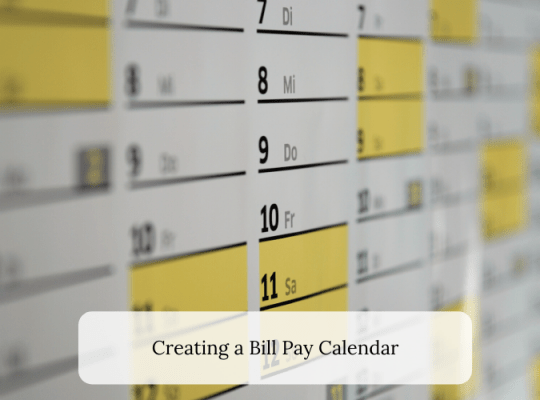It’s that time of year again! People are making resolutions left and right and hoping that they can move the needle forward this year in some aspect of their lives. Last year, I did a post about how I have found success meeting and exceeding my financial goals each year. You can take a look at that post for some goal setting inspiration here. This year, I thought I would focus not just on setting the goals, but on a few steps you can take to make 2020 a great year for your finances!
- Set Goals: I don’t want to overlook this one completely because it is so key to making financial progress. You need to set goals for what you want to achieve, whether it is paying down debt, saving for a specific item, or increasing your net worth, unless you create that target you don’t have a path for moving forward. I suggest writing your goals down. Be as specific as you can, write down how much you will save each month, when you hope to reach your savings target, and why the goal is important to you. Research has shown that goals driven by values are more often achieved, so that last point is extremely important.
- Create a Budget: After you have your goals outlined, you need to be sure that your resource allocations are supporting your goals. This is where budgeting becomes important. Take the time to write down your expenses, include your savings goals, your debt repayments, and anything that you are obligated to pay on a monthly basis. Then, write down your sources of income. Use your income minus your expenses to determine if you are operating in the black (hopefully) or the red. Then make adjustments as needed.
- Get Organized: Once you have your goals set and your budget created, you need to get organized. Set up a system to ensure that you are making your monthly payments and also meeting any savings goals that you may have. Some people like to automate bills and savings, and that is just fine. I find that I do a better job of mindfully managing my money if I have to move it each month. It makes me feel the small wins from saving while at the same time being more aware of my spending. The key here is to do what works for you. Be sure that you know when your bills are due, what the minimum payment is, what you are trying to pay, and also any penalties for being late. Having all of this information on hand will allow you to make informed choices about an excess funds in your budget. Paying on time will also help you build good credit and establish good financial habits.
- Track Your Progress: To ensure that you are on top of your finances in 2020, it is great to follow steps one through three. But you also need to track your progress. You can use excel, your banks software, an app or online service, or even a pen and a notebook. It doesn’t necessarily matter so much how you track your spending, saving, and goals, but rather that you track it. My suggestion is to find a method that will work for you. You know better than anyone if writing it out long hand in a pretty pen will keep you motivated, or make you want to quit. There is no right or wrong but tracking by some method is an important piece of making progress on your goals in 2020.
- Keep Yourself Accountable: This goes hand in hand with tracking your progress. You also need to hold yourself accountable. It is great to make goals and set a budget, but when push comes to shove and you are actually faced with turning down a night out with friends because it isn’t in the budget for the week, it can be hard to keep your goals in focus. So, you need to establish accountability for yourself. Maybe it is checking in with another budget conscious friend once a week or having a family meeting about finances with your spouse or partner, you need to build a system that can help keep you on track to reach your financial goals. This is also an area where a financial counselor or advisor could be very helpful as a neutral third party to help you get yourself where you want to go.
- Practice Grace: The five steps above are all important, but it’s also important to remember at the end of the day that we are all human. Some months our saving is great and in others we splurge on concert tickets. And both are ok. If you miss a savings target or don’t follow your budget perfectly for a month, extend some grace to yourself. Take time to look at what derailed you and learn from the experience. Then, most importantly, get yourself back on track. The slip ups, while not ideal, do not need to throw you off track long term or delay your goals.
The start of a new year can be so exciting, and this year has the double excitement of also being the start of a new decade. It’s fresh and new and offers a chance to put your best foot forward. These six steps above can help you get your finances in working order for 2020 and beyond!
What about you, do you have any financial goals for 2020? And what are you doing to make them a reality?







